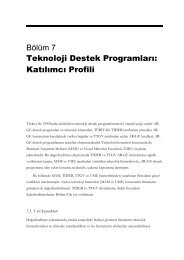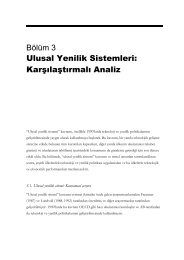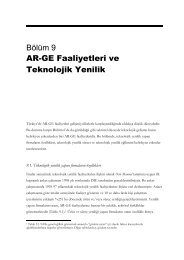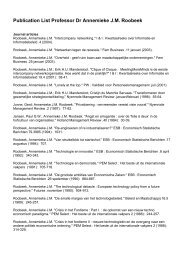Eleventh Five Year Plan
Eleventh Five Year Plan
Eleventh Five Year Plan
Create successful ePaper yourself
Turn your PDF publications into a flip-book with our unique Google optimized e-Paper software.
Towards Women’s Agency and Child Rights 215Pilot Scheme on Conditional Cash Transfer forGirl Child with Insurance Cover6.138 The <strong>Eleventh</strong> <strong>Plan</strong> will introduce a pilot schemein selected backward districts of the country whereinconditional cash will be provided to the family of thegirl child (preferably the mother) on fulfilling certainconditionalities for the girl child, such as birth registration;immunization; enrolment retention inschool; and delaying the marriage age beyond 18years. The scheme will also include a sub-componentfor providing insurance cover to the girl child. Thiswill be in addition to the various existing incentivesprovided by the Centre and State. This scheme willbe monitored closely to support desirable behaviourand practices and study its impact on communityattitudes and practices.Prevention of Girl Child Abuse, Exploitationand Violence6.139 The ICPS of the MoWCD along with enablinglegislations like Offences Against Children Bill isexpected to prevent girl child abuse and violence bystrict enforcement of laws for rape, sexual harassment,trafficking, domestic violence, dowry, and other relatedcrimes. Community Vigilance Groups along withSelf-Help and Youth Groups will be created to ensurethat girl children are protected. These groups will workclosely with Panchayats and DCPUs being proposedunder ICPS. Public discourse on abuse, exploitation,and violence against the girl child will be promoted tobreak the silence around these issues. At the same time,well thought out ‘rehabilitation packages’ for specifictypes of abuse/violence perpetuated will be preparedwith the assistance of VOs.Trafficking for Commercial Sexual Exploitation6.140 In the <strong>Eleventh</strong> <strong>Plan</strong>, MoWCD will focus on amulti-pronged approach to combat trafficking. Thiswill include reform in the laws, preventive measures,rescue and rehabilitation measures, awareness generation,and sensitization. The <strong>Eleventh</strong> <strong>Plan</strong> will addresstrafficking in women and children through a ‘ComprehensiveScheme for Prevention of Trafficking,Rescue, Rehabilitation and Re-integration of Victimsof Trafficking for Commercial Sexual Exploitation’that will be based on the results of small pilot projectsinitiated during the Tenth <strong>Plan</strong>. Three pilot projectshave already been initiated; two in source areas (ruralarea, where it is a traditional practice) and one indestination area. All projects under the scheme areone-year pilots. The lessons learnt will be replicatedand up-scaled for wider outreach during the <strong>Eleventh</strong><strong>Plan</strong> period.Prohibition of Child Marriage6.141 Enforcement mechanisms for implementationof the Prohibition of Child Marriage Act,2006 will be strengthened. MoWCD will partnerwith Civil Society groups, PRIs, community-basedorganizations, SHGs, maulvis/pandits/priests/other religious leaders to mobilize, develop, andpromote community initiatives to support delayedmarriage. Compulsory Registration of Marriageswill be ensured.CONSUMERISM AND THE GIRL CHILD6.142 The <strong>Eleventh</strong> <strong>Plan</strong> will fund initiatives that raiseawareness to ensure that the market economy, increasingconsumerism, and resultant family planningpractices do not enhance gender inequality and leadto ‘male child planning’.REACHING OUT TO THE MARGINALIZEDAND MOST VULNERABLEChild Workers6.143 Statistics show that the number of child workershas gone up from 11.28 million in 1991 to 12.66million in 2001. This increase is primarily attributedto States like Uttar Pradesh, Bihar, Rajasthan, andWest Bengal (Figure 6.1).Eliminating Child Labour6.144 Child labour as such is not illegal in Indiaexcept in specific hazardous occupations. Witheffect from October 2006, the Ministry of Labourhas included domestic work and employment indhabas, tea stalls, and restaurants in the scheduleof prohibited occupations under the Act. As a resulta large number of children may be laid off, especiallyin metropolitan cities and big towns. It will benecessary to take adequate measures for the protection,rehabilitation, and education of thesechildren.




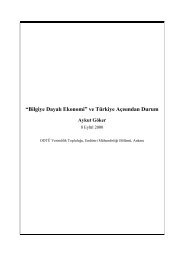
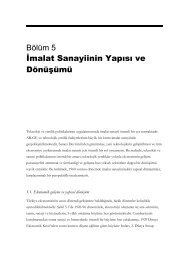
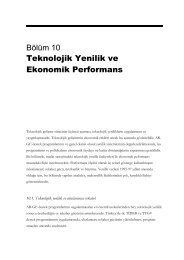
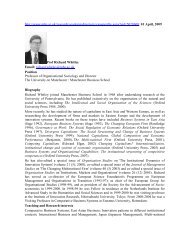

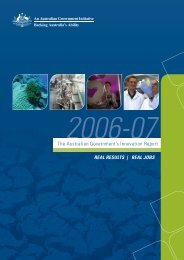
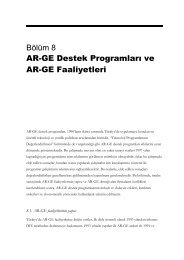
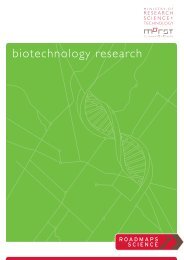
![[Tam] Uygula[ya] - Bilim, Teknoloji ve Ä°novasyon Politikaları TartıÅma ...](https://img.yumpu.com/36820041/1/184x260/tam-uygulaya-bilim-teknoloji-ve-anovasyon-politikalara-tartaama-.jpg?quality=85)
